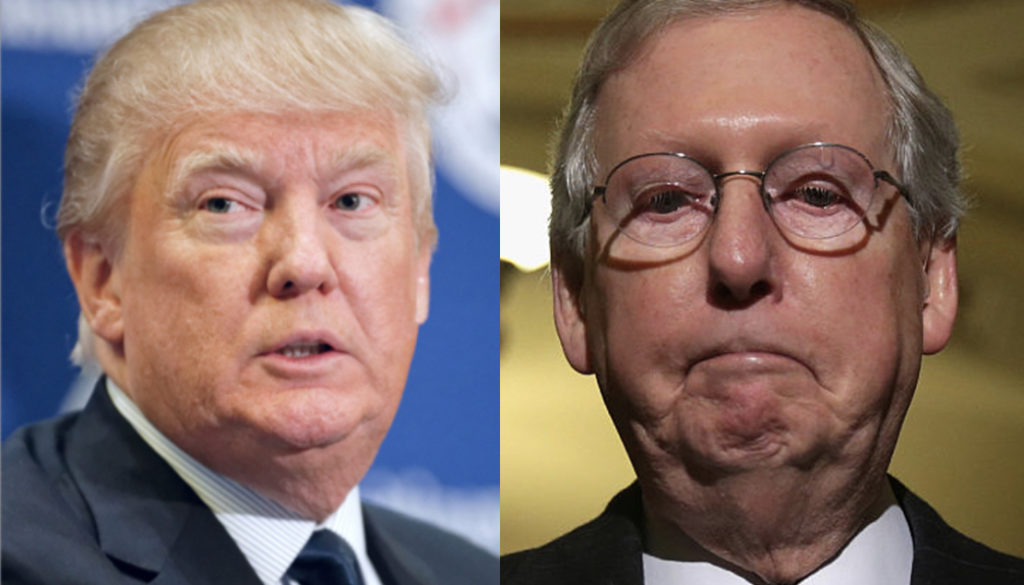What Mitch McConnell is really up to with Donald Trump’s impeachment

To hear Republicans tell it, you’d think the Constitution would have a lot to say about how an impeachment should be handled procedurally, and that the Democrats are failing to do it precisely that way, whatever “that way” is. But the House of Representatives is given either a great deal of latitude or not much in the way of instruction by the Constitution, depending on how you interpret it. Here, in its entirety, is their brief:
The House of Representatives shall choose their Speaker and other Officers; and shall have the sole Power of Impeachment. Article I, Section 2, Clause 5.
That is the beginning, the middle and the end of their procedural province as far as impeachment is concerned. The Constitution is so short on this subject that the framers must have tacked on the bit about choosing the Speaker and other Officers just to keep it from getting lonely. Notice two things here. First, the House of Representatives has a lot of latitude on how they can choose to go about impeaching someone, including a president (and for our purposes I will only talk about the impeachment of the president). Second, once they have handed off their results to the Senate it can be said that a president is “impeached.” That is, once the House drafts articles of impeachment on Donald Trump and those articles pass by a simple majority voice vote, Donald Trump will at that point (and not a moment before) be said to have been impeached.
It is then up to the Senate to try the president. They must try him according to the merits of misconduct outlined in the articles of impeachment broadly defined by the Constitution as:
The President, Vice President and all civil Officers of the United States, shall be removed from Office on Impeachment for, and Conviction of, Treason, Bribery, or other high Crimes and Misdemeanors. Article II, Section 4.
Conviction means the president is automatically removed from office. Notice that the president may be impeached for reasons that are not necessarily statutory crimes, hence the rather vague “high crimes and misdemeanors.” If you’re unconvinced of this from the language, you may be assured that is what the founding fathers had in mind, as Alexander Hamilton wrote in the Federalist Papers 65 saying that “high crimes and misdemeanors” means:
the misconduct of public men, or in other words from the abuse or violation of some public trust.
Now here’s the problem. Nowhere in the Constitution does it say when the Senate is supposed to try an impeached president. In other words, it sets no time limit on when such deliberations are to begin. Mitch McConnell was recently quoted as saying that he will have no choice but to hold a trial if the full House impeaches Trump. But he didn’t say when he would hold a trial. And no one thought to ask him.
Constitutionally there is nothing stopping McConnell from delaying the trial indefinitely. He might suggest it’s “unseemly” to conduct the trial in an election year and will insist on delay. After all, he refused to consider the confirmation of Merrick Garland for a similar reason. Such a move might rescue his colleagues from having to decide Trump’s fate in an election year, and wouldn’t it be convenient if the voters did that for them? Then everybody avoids an apparent damned if you do, damned if you don’t scenario – in an election year.
Mitch McConnell will do whatever is best for Mitch McConnell. When the time comes he will decide to conduct the trial of Donald Trump right away or never, depending on the current direction of the political wind. Whatever his choice you can bet that his least consideration will be that which is best for Democracy or the American people.

Robert Harrington is an American expat living in Britain. He is a portrait painter.
